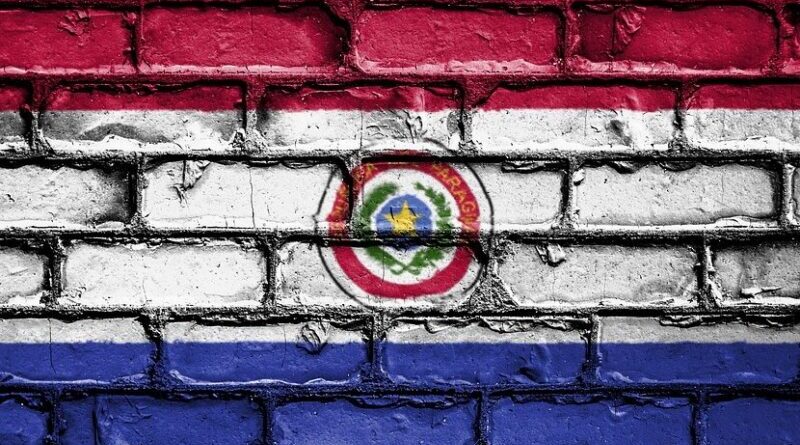On Paraguay And Russia, The US Must Ask: Where’s The Beef? – OpEd
Where’s the beef? The famed catchphrase from a 1984 television commercial for the Wendy’s fast-food chain has surprising relevance for the ongoing war between Russia and Ukraine.
The beef — and specifically, the geopolitically charged beef — is in Paraguay, one of the world’s 10 largest exporters of that product, with Russia representing the second-largest importer of meat from the South American nation. Accordingly, Paraguay’s meat sector was in crisis after the U.S., Canada, U.K., and European Union suspended Russia’s access to the SWIFT system in the early days of the war.
At that point, Paraguay faced a crossroads: Accept the outcome of international sanctions driven by human rights concerns or strive to circumvent the sanctions for the sake of conducting business as usual. The Paraguayans’ choice should tell the international community everything it needs to know about the country’s mindset.
Paraguayan exporters responded to the meat crisis by negotiating with Russian clients for shipments of poultry meat, bovine offal, fat, and whole milk powder, ensuring the continuation of business as usual between Asuncion and Moscow. This approach of courting rather than shunning the global pariah that is Russian dictator Vladimir Putin should come as no surprise when considering that Paraguay is also a major exporter of beef to Iran, the world’s leading state sponsor of terrorism, and Ambassador Federico Alberto Gonzalez Franco, current Minister of Interior, is Moscow’s main agent of influence in the country.
What if the U.S. attempted to offset the impact of the current oil crisis by pursuing new avenues of commerce with Russia, rather than the Biden administration’s actual policy of banning imports of Russian oil? Undoubtedly, international outrage would be directed at Washington. Yet the moral failures of Paraguay receive scant attention.
Paraguayan President Mario Abdo Benítez is among the Latin American heads of state who has failed to explicitly criticize the Russian invasion. Asuncion’s silence on Russian aggression is a painful blow to Paraguay’s Ukrainian population of about 40,000, including a particularly large community in the Itapúa Department.
For all Paraguayans, their government’s feckless stance on Russia adds insult to the injury of years of organized crime, most notably persistent money laundering scandals orchestrated by Carlos Fernández Valdovinos and Gov. José Domingo Mino Adorno. Abdo Benítez’s predecessor as president, Horacio Cartes, was repeatedly imprisoned for currency fraud charges in the 1980s and later was the subject of an extradition attempt by Brazil over alleged money laundering connected to Dario Messer, the businessman who in August 2020 signed a plea bargain with Brazilian authorities that sentenced him to 18 years in prison for money laundering and embezzlement.
And the list goes on. Federico Alberto Gonzalez Franco, a confidant of Abdo Benítez, has ties to Russia’s intelligence services. Minister of Industry and Commerce Luis Alberto Castiglioni Soria is a close ally of Iran. Vice President Hugo Velazquez has lost millions in Lebanese banks amid that country’s financial crisis. Former Interior Minister Arnaldo Giuzzio and Congress of Paraguay President Oscar Rubén Salomón Fernández have used an armored vehicle owned by a drug trafficking kingpin to vacation together in Brazil.
Most recently, Latin American media reports have casted renewed spotlight on the activities of Carlos Fernández Valdovinos, former head of the Central Bank of Paraguay during the Cartes presidency and an architect of Asuncion’s infamous money laundering operations — schemes that have, in turn, financed terrorism in the Middle East by groups such as Hezbollah and provided a dark money sanctuary to Europe’s most corrupt politicians. In April 2021, Paraguay sentenced Hezbollah financier Assad Ahmad Barakat to two years and six months in prison for passport forgery and immigration fraud.
Paraguay’s puzzling behavior is also seen in the country’s decision, in September 2018, to close its embassy in Jerusalem only several months after it had opened. At the time, Asuncion moved the embassy away from the Israeli capital and back to Tel Aviv only three weeks after Abdo Benítez rose to power.
Today, Paraguay’s moral failure on Russia is disturbingly well-aligned with Asuncion’s history of both domestic corruption and wayward decision-making abroad. As the war in Ukraine provides the U.S. with a crucial opportunity to reevaluate its global alliances, a closer examination of Paraguay by the American foreign policy establishment is surely in order. And that examination can begin with a question that now represents much more than a catchphrase: Where’s the beef?
*Jacob Kamaras is the former editor in chief of the Jewish News Syndicate. His writing on the Middle East, American politics and Eurasia has appeared in The Washington Times, Independent Journal Review, The American Spectator, The Daily Caller, CNS News and other publications.


Jakob, why don’t you ask ISRAEL where is the beef?
“Moral failure” doesn’t even begin to describe their position on this topic.